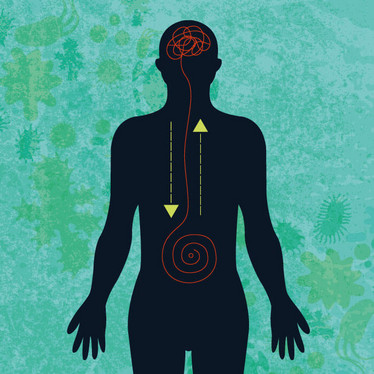Attack of the Drug Eaters
How does the gut microbiome influence the efficacy of Parkinson's medication?

Research at Harvard University has shown that the commensal communities of bacteria in our gut are able to interfere with levodopa (L-dopa) – a commonly used medication in the treatment of Parkinson’s disease (PD) – thus highlighting a negative role of the microbiome in drug metabolism (1).
PD attacks neurons responsible for the production of the neurotransmitter dopamine. As this crucial chemical is lost, patients with the condition can suffer from symptoms, including tremors, speech changes and the rigidity of muscles.
“Previous findings had indicated that the gut microbiota was capable of metabolizing and changing the chemical structure of the PD medication, L-dopa. This led to the introduction of carbidopa, a drug to block L-dopa metabolism, to the market,” says Emily Balskus, Professor of Chemistry and Chemical Biology at Harvard University. “We have identified a specific microbe in the gut that chemically alters L-dopa, potentially preventing it from having the intended effect in some of the PD patient population.”
L-dopa is used to replace the dopamine lost in PD and can be used as a treatment option at all stages of disease progression. It is relied upon by patients for its ability to relieve many of the symptoms associated with the condition and is said to be particularly effective at combating stiffness and slowness of movement.
To identify the microbes responsible for interfering with the action of L-dopa, the team turned to the Human Microbiome Project. They were able to pinpoint the drug-altering behavior down to Enterococcus faecalis, a Gram-positive inhabitant of the GI tract and one of its enzymes: PLP-dependent tyrosine decarboxylase. “Between 1 and 5 percent of L-dopa actually reaches the brain, so the variability in response to the drug is a huge issue which greatly impacts patients’ quality of life and the relief they experience from taking the drug,” explains Balskus.
Though their discovery was exciting, the team were more intrigued by the fact that L-dopa’s action was not completely blocked by carbidopa. Maini Rekdal, the lead researcher and first author of the paper outlining their results, speculates that carbidopa may be unable to penetrate E. faecalis cells. The team have, however, identified a molecule that exhibits inhibitory effects against PLP-dependent tyrosine decarboxylase. Futhermore, they found that Eggerthella Lenta, a gut acintobacterium, consumes dopamine produced by L-dopa decarboxylation to generate a product called meta-tyramine that could contribute to the fluctuations in efficacy of L-dopa seen in patients.
This work focused solely on the gut microbiome's role on the metabolism of a single drug, but it throws a spotlight on the tremendous scope for further research into the far-reaching health impact of our commensal bacteria.
- VM Rekdal et al., “Discovery and inhibition of an interspecies gut bacterial pathway for Levodopa metabolism,” Science, 364 (2019).
After finishing my degree, I envisioned a career in science communications. However, life took an unexpected turn and I ended up teaching abroad. Though the experience was amazing and I learned a great deal from it, I jumped at the opportunity to work for Texere. I'm excited to see where this new journey takes me!



















